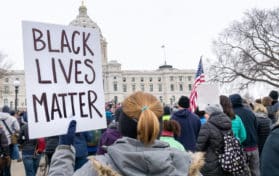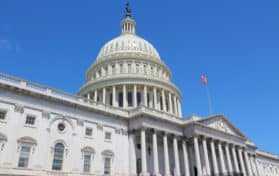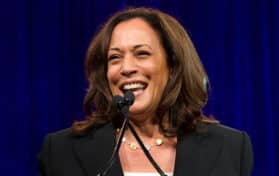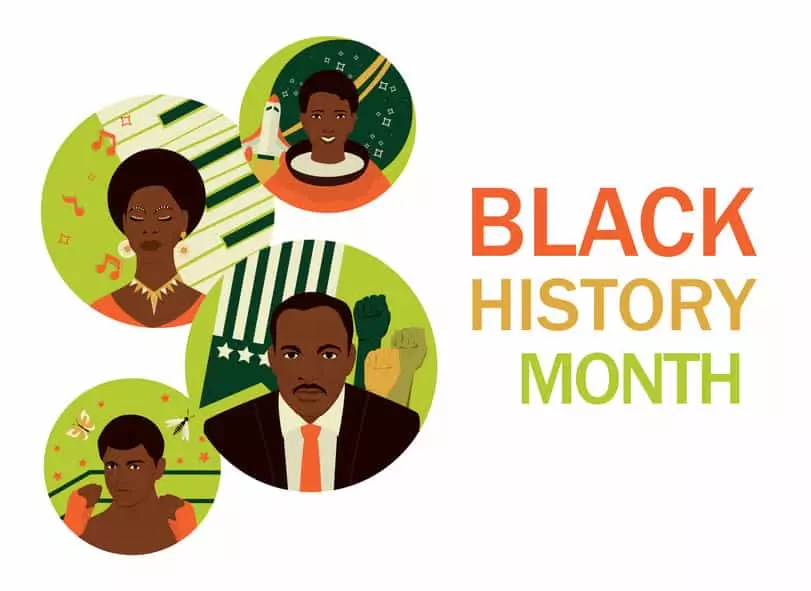
The historian who inspired the idea of Black History Month, Carter Woodson, once said, “(Americans should) seize the opportunity to honor the too-often neglected accomplishments of Black Americans in every area of endeavor throughout our history.” Fifty years passed before Americans took Woodson’s advice to heart, but his dream came to pass in 1976, the year that Black History Month was initially celebrated in multiple locations across America.
The contributions of black Americans to society are some of the most necessary, but at the same time, many Americans do not know these inventions origins. Certainly, children learn about black pioneers, without whom this country would not be the shining light on a hill that it is. One of the first black women to receive a patent for her invention was Sarah Boone, who invented the ironing board. Garrett Morgan, who had only the equivalent of a sixth grade education, invented the three light traffic signal. We wouldn’t be able to get produce at the grocery store without Frederick McKinley Jones’ roof-mounted cooling system that is used to cool the trailers of trucks transporting perishable items, such as produce, milk, eggs, and much more. These inventions have made everyday life easier, and we couldn’t imagine life without them.
While children are familiar with notable African Americans – Harriet Tubman, Frederick Douglass, and Rosa Parks – Black History Month provides an opportunity to learn about not only the history of these important individuals, but this event allows Americans to learn about the multiple contributions of African Americans, which have made our country a better place to live.
Facts Regarding Black History Month
Carter G. Woodson, often called the Father of Black History, spent a great portion of his life lobbying for the establishment of Black History Month. He once said, “truth could not be denied and that reason would prevail over any prejudice.” Woodson founded the Association for the Study of Negro Life and History. He also established Negro History Week in 1925. While it would be some time before Black History Month was nationally established, Woodson’s work and determination would eventually the way to such an establishment.
The chief purpose for establishing Black History Month is to study and honor the contributions of African Americans to American history. Woodson worked diligently to ensure that this would eventually happen.
It would be 1976 before Woodson’s dream became a reality. However, many of the ideas which Woodson put forth are still a part of Black History Month. Woodson suggested February be chosen as Black History Month as that time period coincided with the birthdays of both Abraham Lincoln, who emancipated the slaves, and Frederick Douglass, the self-educated slave-turned-abolitionist.
February has other notable significance in the history of African Americans. The National Association for the Advancement of Colored People (NAACP) was established in February 1909. Hiram Revels, a former slave from Mississippi, was the first African American elected to serve in the United States Senate; he began his term in February 1870.
President Gerald Ford signed a proclamation that changed Negro History Week to Black History Month, to be celebrated during the month of February. The Civil Rights movement of the 1960s had a great deal to do with this proclamation.
Interesting and Little Known Facts Regarding Black History Month
1. The first people to celebrate Black History Month were the black students and educators at Kent State University. They did so during January and February 1970. It is said that students on college campuses around the nation are responsible for the push to establish a month-long celebration of black history.
2. Black History Month is celebrated in multiple countries around the world, but different locals celebrate the month uniquely. The United Kingdom, as well as the Netherlands, celebrate Black History Month in October.
3. In 2014, Ireland became the fourth country worldwide to celebrate Black History Month.
4. The Association for the Study of African American Life and History (ASALH) chooses a theme yearly to celebrate Black History Month. In 2020, the theme of Black History Month was “African Americans and the Vote,” and in 2021, the them is “The Black Family: Representation, Identity, and Diversity.” The current year’s theme is “Black Health and Awareness.”
The Association for the Study of African American Life and History was founded by Dr. Woodson, along with Reverend Jesse Moorland.
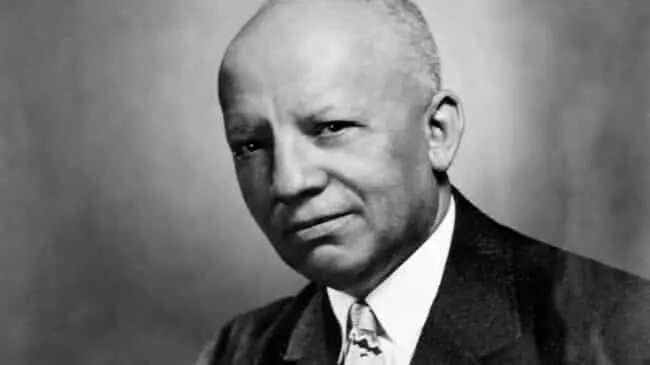
What are the origins of Black History Month?
Certainly, we understand that Carter Woodson was paramount to the establishment of Black History Month. He even proposed a month dedicated to the study of black history! However, Woodson would not live to see his dream realized. Let’s take a look at the life and work of Carter Woodson.
Woodson was born in Virginia in 1875 to parents who were slaves prior to the Civil War. In fact, Woodson would be the only person born to former slaves who would earn a PhD. Although his parents couldn’t read or write, they encouraged their son to pursue an education. Woodson managed to teach himself much of what he would have learned in elementary school while assisting his parents on their farm. He would later move to West Virginia in order to go to high school.
Woodson had to work in local West Virginia coal mines in order to be able to attend high school. He was twenty years of age by the time he was able to attend school full-time, but he eventually earned his diploma. Woodson would accept a position as a teacher at his high school, and later become the principal of the same.
Woodson continued to pursue higher degrees over the next twelve years, all while teaching. He obtained a Bachelor’s, Master’s and PhD during that time. After W. E. B. DuBois, Woodson was the second African America to earn a Phd, which Woodson earned from Harvard University (unlike Woodson, DuBois’ parents were not slaves).
Woodson faced discrimination, yet he never allowed it to deter him. He had earned a doctorate, yet no institution of higher learning would hire Woodson. He would eventually become a professor at Howard University and later a dean.
One of Woodson’s dreams was to see a celebration of the inventions and efforts of black Americans, but, he saw first-hand that he would need to create an “institutional structure” in which “black scholars (could) study history.” In order to do this, Woodson sought funding from institutions such as the Julius Rosenwald Foundation, the Rockefeller Foundation, and the Carnegie Foundation. Rosenwald would not not only donate to Woodson’s work, but he was also on the board of Woodson’s Association for the Study of Negro Life and History.
From that time on, Woodson dedicated himself to researching and preserving African American history. He began collecting artifacts. He gathered previously written publications on the topic, and he wrote ceaselessly on the topic himself. By 1926, Woodson had established Negro History Week, which was celebrated during the second week of February. Woodson was quoted as saying: “If a race has no history, it has no worthwhile tradition, it becomes a negligible factor in the thought of the world, and it stands in danger of being exterminated.”
Although Woodson passed away before his idea for an entire month dedicated to celebrating the history of African Americans and their contributions, scholars would ultimately honor him by bringing his dream to fruition.
How did college students and young people influence the adoption of a Black History Month?
Because students, mostly college age students, were an integral part of the Civil Rights Movement, young people must receive a great deal of credit for the way we celebrate Black History Month today.
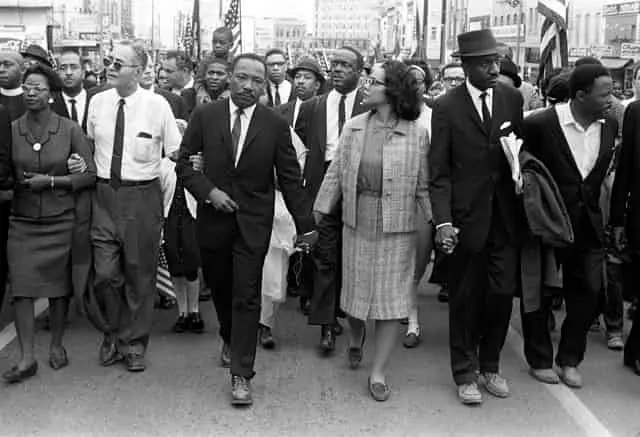
Why is studying Black History so important?
In 2016, then-President Barack Obama recognized forty years of the nation celebrating Black History Month. In a message from the White House, President Obama related: “Black History Month shouldn’t be treated as through it is somehow separate from our collective American history or somehow just boiled down to a compilation of greatest hits from the march on Washington or from some of our sports heroes . . It’s about the lived, shared experiences of all African Americans.”
Dr. Carter Woodson was correct when he said that if the history of African Americans was not remembered or taught to future generations, it would be “exterminated.”
Studying Black History deepens our cultural awareness.
Studying history of any kind will provide the student with a newfound cultural awareness. In addition, it often provides a more moral understanding of the world around us.
There is more to studying any history than simply memorizing days and names of historical figures and happenings. Rather, when one studies history of any kind, it is important to ask “why?” and “how?” Searching for the how and why of Black History can help Americans of all ethnicities to understand one another better. It can also help to build respect between Americans of various cultures.
An old adage says that those who do not learn from history are doomed to repeat it. While Americans shudder at the thought that the country could ever be as divided as it once was, today’s America does seem fairly divided. In this respect, studying Black History could very well serve to increase understanding and soothe rising tensions in America.
America is a far cry from the tattered nation emerging from the Civil War. Today, Americans celebrate the contributions of black Americans to the country. Black Americans have contributed to not only multiple aspects of American culture – music, athletics, and fashion – but they have been vitally important in politics, the arts (literature and artwork), medical innovations, and the world of business.
Yet, our country seems more polarized than ever, at least where ideologies are concerned. However, the study of history, particularly the numerous contributions of Black Americans, reminds Americans of how vitally important we all are to the success of the American experiment. Learning about other cultures ultimately teaches Americans just how alike we all really are, and it helps us to make connections in a human way. Perhaps these connections can help to heal the current divide in America.
Ironically, when Black History month was first established by President Ford, many Americans voiced concerned that only educational institutions would be celebrating, and they also dismissed they idea of dedicating only one month to the topic. These individuals believed that Black History should be taught as robustly and as often as other historic events in the American history curriculum.
Mississippi-born actor Morgan Freeman commented in support of this notion: “I don’t want a Black History month. Black history is American history.”
Today, the celebration of Black History Month is not confined to educational centers. Black History Month is celebrated by businesses, tech companies (check out the Google graphic and you’ll be sure to see a reminder), theaters, and a number of other places. Local libraries will highlight African American authors. Museums schedule special exhibits that may or may not incorporate the yearly theme for each Black History Month.
Corporate America even manages to show appreciation for the contributions of African Americans to the country. Instagram often launches a hashtag and encourages followers to learn more about Black History Month initiatives. Spotify partnered with Instagram in 2018 to launch #celebrateblackcreatives, a program that would eventually garner nearly 20 million followers.
Morgan Freeman said it best – Black History IS American history. Learning about black history is a celebration of their contributions, without which our country would not be the America we know. In closing, here are a few contributions that we Americans depend upon made possible by innovative African Americans:
1. The home security system – Mary Van Brittan Brown (1966)
A nurse, Ms. Brown used a system that utilized a camera attached to peepholes in her front door. This system was attached to a monitor. She also incorporated a microphone and a button which would open her door. She and her husband applied for a patent and won. Today’s home security systems are typically modeled after her innovation.
2. The electret microphone – Dr. James E. West (1960)
Ok, so most of us don’t use a microphone on a daily basis, but many Americans have used a baby monitor, or hearing aids, or even tape recorders. The electret microphone, an early version of the microphones used in the aforementioned devices, was the invention of German Gerhard Sessler and his colleague, Dr. James E. West, who worked at Bell Labs in 1960.
3. Carbon light filament – Lewis Latimer – 1881
We all know that credit for the invention of the light bulb goes to Thomas Edison, but, one of the integral parts of the bulb – the part that makes it last longer – is the filament. This was the invention of a man who was born to former slaves, Lewis Latimer, in 1881. Latimer had also served in the Civil War, fighting with the Union.
Latimer would also patent ideas for an improved bathroom on trains. He would eventually work alongside Edison at the Edison Electric Light Company.
4. The Color IBM PC Monitor and Gigahertz Chip – (Co-invented by) Mark Dean – 1980, 1999
Mark Dean is an engineer who worked for IBM – a predecessor to companies like Microsoft and Dell Computers – in the 1980s. At that time, Mark was a member of a twelve-member team who built computers. Mark, in particular, worked to develop the color monitor as well as the gigahertz processor inside the PC. This resulted in a large chip that increased the processing capability of the personal computer.
Quick FAQs about Black History Month
What is Black History Month and why is it celebrated?
Black History Month is a celebration of the contributions of African Americans to the American culture. It is also a study of famous Blacks from athletes such as Jackie Robinson to historical icons including Dr. Martin Luther King, Jr. or Medgar Evers.
Why was February chosen as Black History Month?
February is significant because both Abraham Lincoln’s birthday is celebrated then, as well as the birthday of the abolitionist who was born a slave, Frederick Douglass. Woodson chose the second week of February when he established Negro History Week because Lincoln’s birthday is the 12th, and Douglass’ birthday is the 13th. Eventually, Negro History Week was expanded to one month, but February was chosen because of those important individual’s birthdays.
When did Black History Month start?
Negro History Week began in 1926. Black History Month was not celebrated on a national level until 1976.
Who started Black History Month?
Black History Month was the idea of Dr. Carter G. Woodson, an African American historian. He was also an author who wrote several works on the history of a number of black Americans.
Is Black History Month Only in America?
No. Black History Month is celebrated in the United Kingdom, including Ireland. It is also celebrated in the Netherlands and Canada.
Who is the most important person in Black history?
Arguably, the most important figure in Black History is Dr. Martin Luther King, Jr. Dr. King promoted change through a non-violent means of protest. He also preached love and unity.
Who is the first black president?
The first black president in American history is Barack Obama, but he was not the first candidate to run for president in the country. In 1904, George Edwin Taylor (also known as “Judge” Taylor) was the president of the National Negro Democratic League, and he was asked to run for president of the newly formed National Negro Liberty Party.
When did African Americans get the right to vote?
The Fifteenth Amendment, which gave voting rights “to men of all races” was ratified in 1870. At that time, there were some blacks who were able to vote. However, it would be nearly a century later before many of the roadblocks to voting set in place so that blacks might be prohibited from voting were legally thrown out as a result of the Civil Rights Act of 1965.
What is Black culture?
Black culture involves food, music, dance, fashion, religious beliefs, and holidays or observances held important by the African American community. Black culture has had a profound effect on American culture, the language, the music and entertainment, and sports, among other areas.


